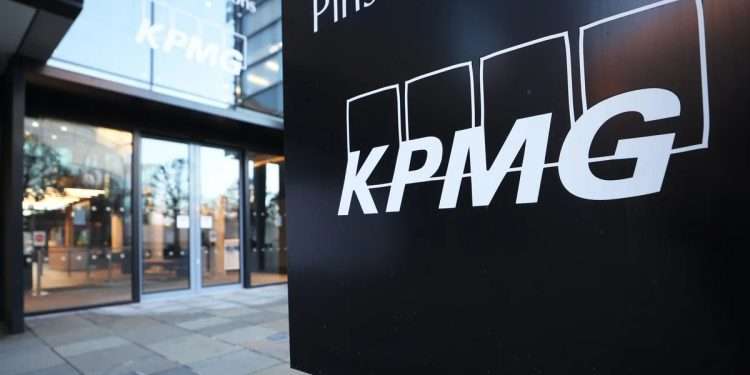2024 Corporate Sustainability Disclosure Report
KPMG releases 2024 Corporate Sustainability Disclosure Report, aimed at analyzing the current state of global corporate sustainability disclosure.
The corporate sustainability disclosure report is based on sustainability reports released by 5800 large enterprises in 58 jurisdictions, and these enterprises will be the first to be affected by mandatory sustainability disclosure regulations.
Related Post: KPMG Releases 2023 Corporate Sustainability Disclosure Report
Current Status of Corporate Sustainability Disclosure
79% of the 5800 large enterprises have released sustainability reports, and 96% of the world’s largest 250 large enterprises have released sustainability reports. From regional perspective, information disclosure in North America (97%), Asia Pacific (92%), and Europe (81%) leads the average level. Large corporations from seven global jurisdictions have all released sustainability reports, including Japan, Malaysia, Singapore, South Africa, South Korea, Thailand, and the United States.
The EU Corporate Sustainability Reporting Directive is of great significance for large enterprises to disclose their sustainability. The directive requires approximately 50000 companies operating in the EU to submit sustainability reports, including thousands of companies with headquarters outside the EU. KPMG expects a large number of companies in the United States (3000), Canada (1300), the United Kingdom (1200), Japan (700), Australia (600), China (600), and other countries to comply with the Corporate Sustainability Reporting Directive.
62% of the 5800 large enterprises worldwide have included sustainability information in their annual reports, and this proportion has risen to 82% for the largest 250 enterprises. Overall, the sustainability disclosure of enterprises has reached a new high since 2017. In terms of regions, 81% of large enterprises in the Asia Pacific region meet the criteria, with the highest overall proportion. In terms of industry, the automotive industry (72%) and the fossil fuel industry (69%) are most likely to include sustainability information in the report.
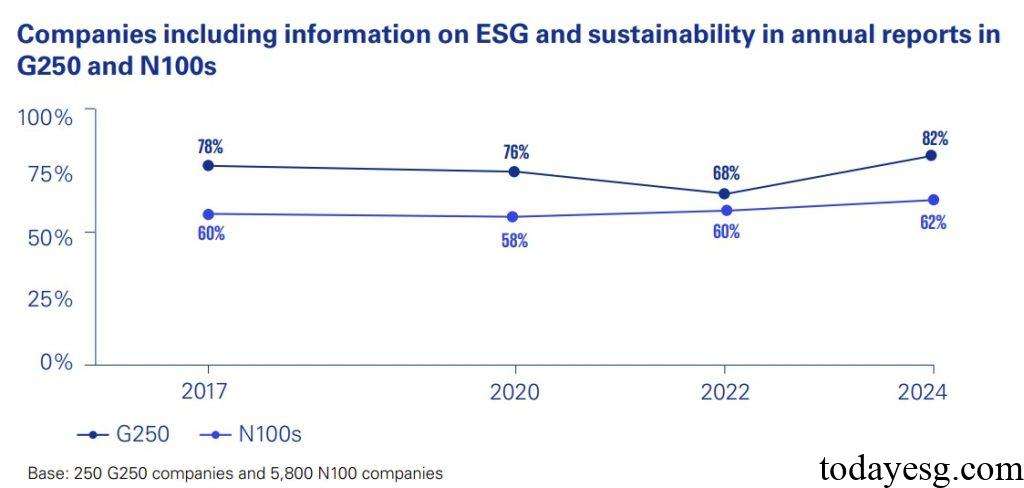
Corporate Sustainability Disclosure Framework
KPMG finds that companies mainly adopt three standards for sustainability disclosure, namely:
- The standards developed by Global Reporting Initiative, which is the most popular standard globally. They have been adopted by 71% of large enterprises, with 75% of large enterprises in the Asia Pacific region adopting this standard.
- The standards developed by Sustainability Accounting Standards Board, which have been adopted by 41% of large enterprises, with 67% of large enterprises in the Americas adopting this standard.
- The standards developed by stock exchange, which have been adopted by 31% of large enterprises, with 62% of large enterprises in Africa adopting this standard.
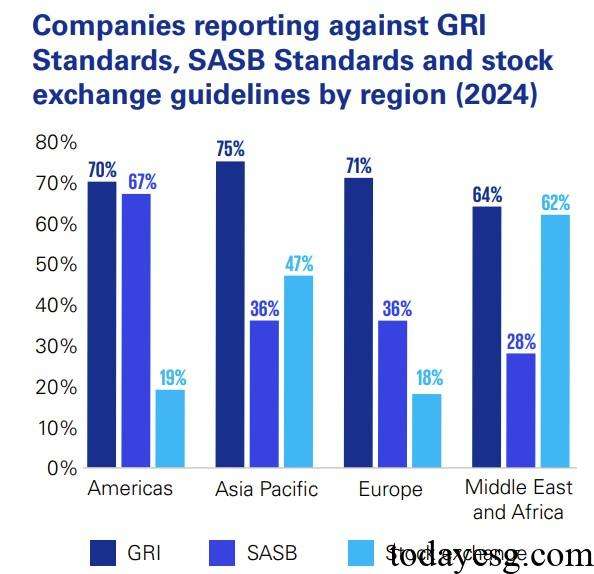
In terms of sustainability assurance, 69% of the world’s top 250 companies have adopted sustainability assurance, and 54% of large enterprises have adopted sustainability assurance, with higher proportions in Europe (59%), Asia Pacific (55%), and the Americas (53%). Half of the companies chose the same institution to provide assurance for their sustainability and financial reports. The EU Corporate Sustainability Reporting Directive requires companies to adopt sustainability assurance, so this proportion will continue to increase in the coming years.
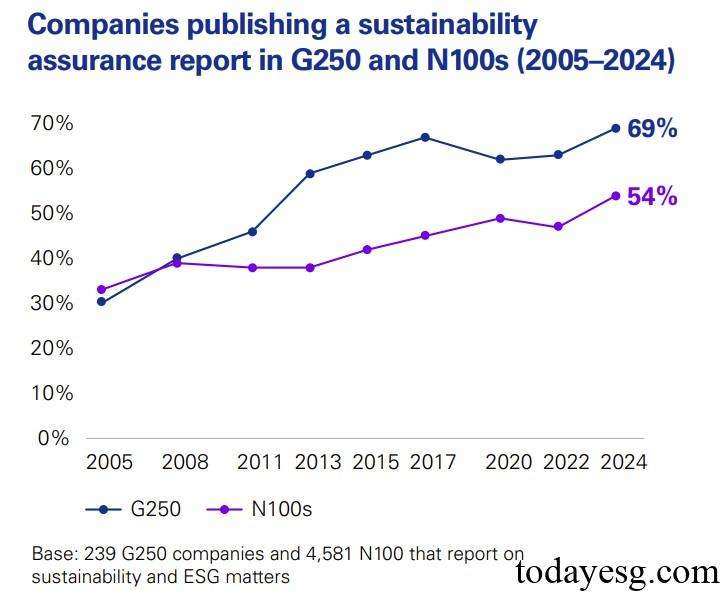
Corporate Sustainability Disclosure Contents
KPMG studies the contents of corporate sustainability disclosure from the following aspects:
Materiality Assessment
79% of large enterprises use materiality assessment, but only 42% use double materiality assessment. In materiality assessment, 32% of companies use impact materiality assessment, and 5% of companies use financial materiality assessment. With the implementation of regulatory policies, the number of enterprises adopting double materiality assessment may continue to grow in the future.
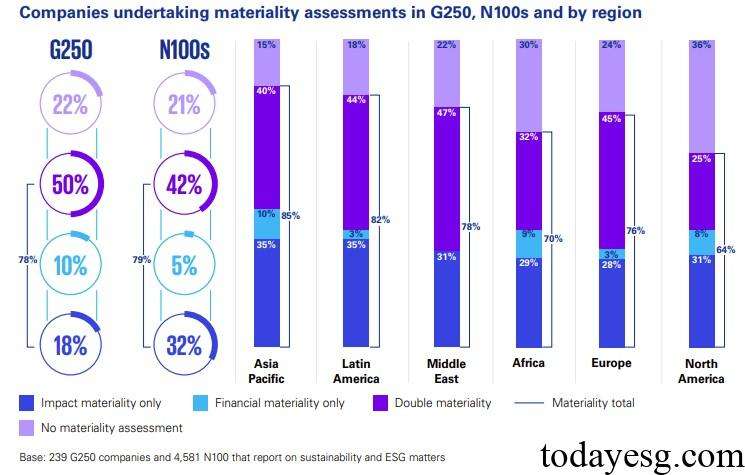
Carbon Reduction Targets
80% of large enterprises have set carbon reduction targets, an increase of nine percentage points compared to last year. Europe (83%), the Americas (81%), and Asia Pacific (80%) have relatively high proportions. 60% of large enterprises use the Paris Agreement global warming target as the benchmark, and 40% of large enterprises have set science based carbon reduction targets.
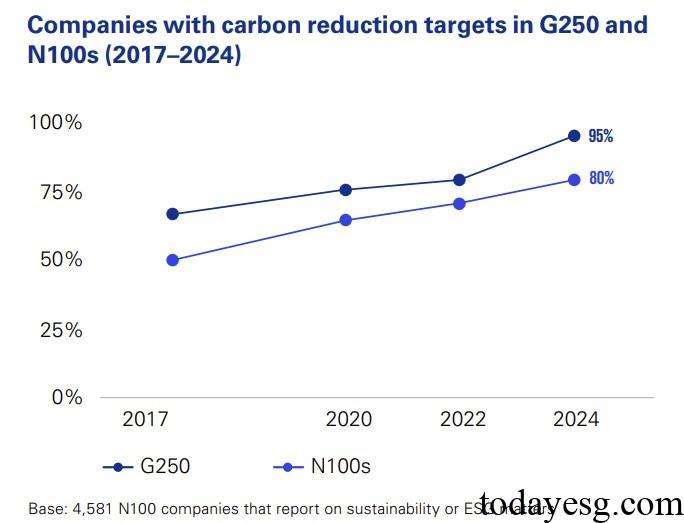
Biodiversity
49% of large enterprises have disclosed biodiversity information, which has doubled compared to 2020, with the Netherlands (83%), Japan (80%), and Brazil (76%) accounting for a high proportion. Enterprises that have a material impact on the environment are most likely to disclose biodiversity information, such as mining companies (68%), fossil fuel companies (62%), and paper companies (55%).
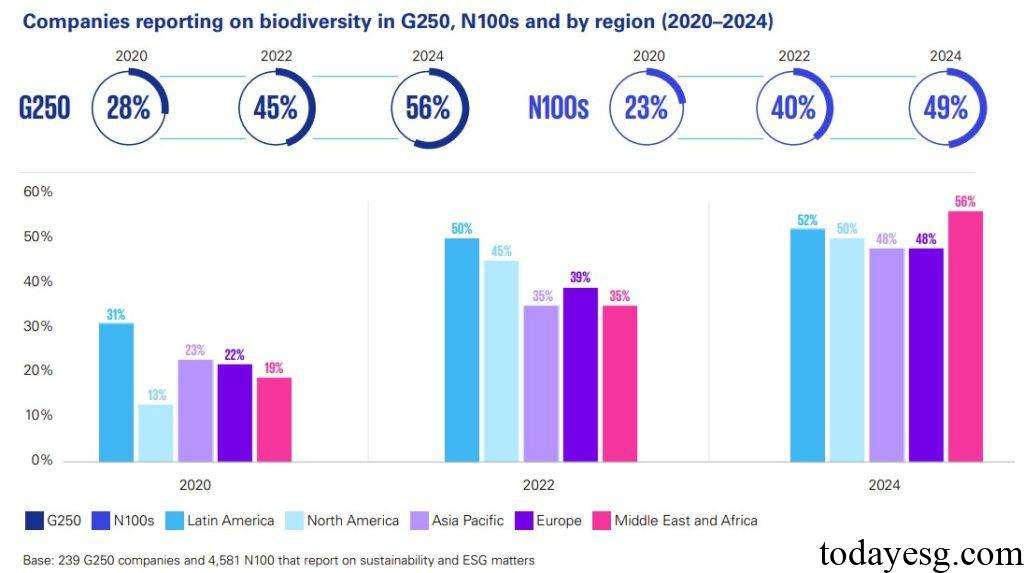
Sustainable Development Goals
75% of large enterprises have adopted the United Nations Sustainable Development Goals, nearly doubling from 2017, with Japan (99%) and Thailand (94%) accounting for a higher proportion. Most companies include all sustainable development goals in their reports, but only 12% report both positive and negative impacts simultaneously.
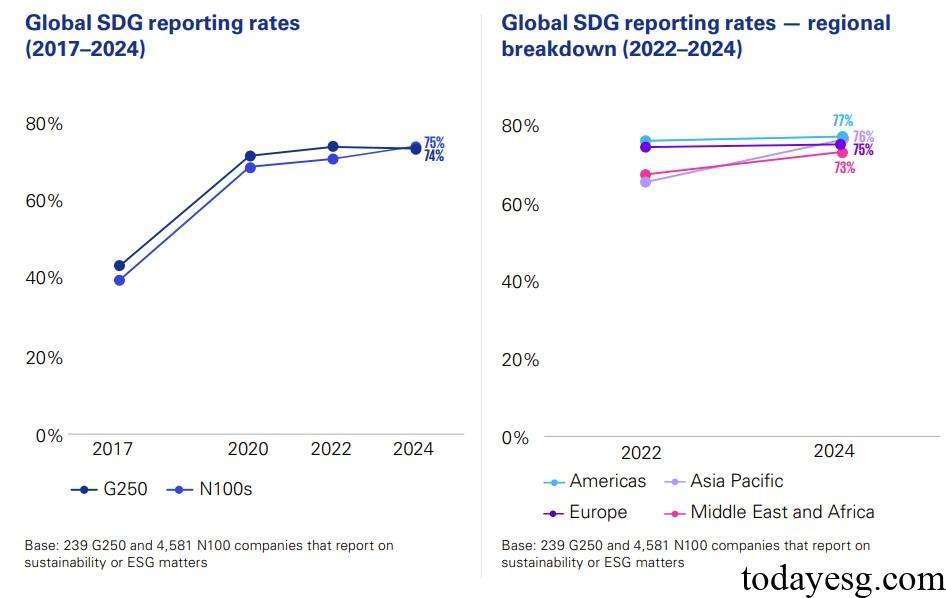
Reference:
The Move to Mandatory Reporting: Survey of Sustainability Reporting 2024

